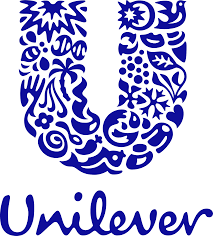
Unilever’s position:
As part of the Unilever Sustainable Living Plan, Unilever has ambitious targets to reduce the impact of its packaging waste on the environment, including making its packaging more recyclable, using more recycled materials and reducing the weight of its packaging.
It recognises the need to increase recycling and recovery rates, and reduce the impact of littered or landfilled waste. It shares a responsibility with its consumers and supply-chain partners to minimise packaging waste, so welcome the opportunity to contribute ideas, expertise and resources and help shape future initiatives and policies.
Unilever recognises the need to work with governments, NGOs, retailers, the waste sector, and businesses to help develop infrastructure, and increase consumer awareness about waste management to stimulate recycling.
Unilever supports schemes, such as programmes in place in Brazil and Indonesia, which establish partnerships between businesses and the informal recycling sector. Such initiatives support low-income workers who collect waste from sometimes hazardous landfill sites, helping them into roles within a more formalised recycling system. Such programmes have the potential to significantly improve the livelihoods of workers and increase the effectiveness of the sector.
Some national governments are introducing extended producer responsibility (EPR) schemes. European experience suggests there is not a ‘one size fits all’ model and the success of such schemes relies on the commercial, political and cultural realities of specific markets. Where an EPR scheme may be appropriate to a country’s context, Unilever's support for such schemes is conditional on their meeting the following principles:
a) Packaging reduction, recycling and recovery must be of benefit to the environment, with targets and timetables set at ambitious but realistic levels, recognising the constraints of geography, demographics and the status of relevant waste disposal and recycling infrastructure.
b) Costs should be in proportion to the environmental benefit realised, and to the degree of control obligated businesses have over the recycling and recovery system. Competition between or within schemes should be encouraged to reduce costs.
c) All members of the packaging value chain should share responsibility, playing roles in increasing recycling and recovery rates.
d) Sustainable waste management requires the ability to choose the most appropriate recovery option. Unilever recognises that recycling is nearly always the preferred recovery route for waste that cannot be avoided or reduced further, since it keeps the material at its highest resource level for longer. Where recycling is not possible, it believes that clean energy recovery is an acceptable second-best option, so legislation should not discriminate against any recovery option in order to maintain flexibility.
e) The design and implementation of EPR schemes should not discriminate in favour of local manufacturers, hinder or distort competition between packaging formats or material types, or impose quotas or other restrictions on market choice.






